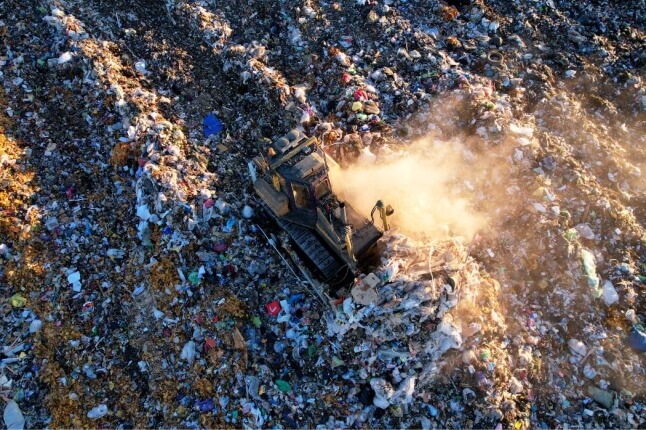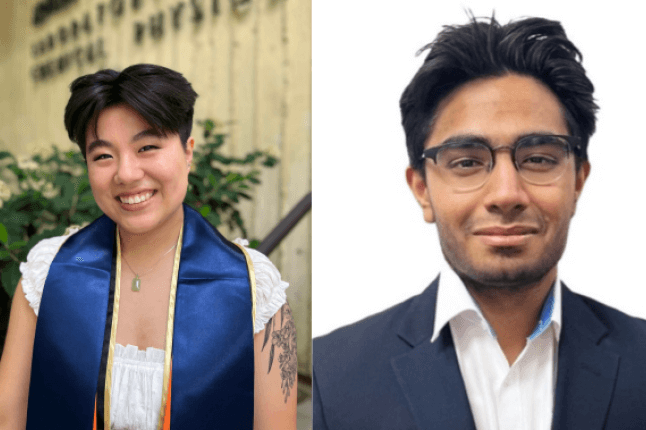News
So far this year, the Salata Institute for Climate and Sustainability at Harvard has funded five climate-related projects led by faculty at the Harvard John A. Paulson School of Engineering and Applied Sciences (SEAS). The projects explore a range of topics — from carbon capture and bioinspired climate control for buildings, to the impact of climate change on land and food systems.
The Salata Institute Seed Grant Program supports research to better understand and develop solutions to address the global climate crisis. This program is part of the Salata Institute’s efforts to expand climate and sustainability research at Harvard. Since its launch in June 2022, the Institute has awarded over $8.68M in climate and sustainability research funding, supporting the work of 62 faculty from across Harvard University.
Bio-inspired building “skin”
More than 25% of the energy and 50% of electricity consumed globally is spent on heating, cooling and lighting indoor spaces with air conditioners, furnaces, and electric lights. The demand for indoor climate control will only increase as the planet warms and extreme heat waves get longer and more frequent. With more air conditioning comes more emissions — researchers estimate that emissions from refrigeration and air conditioning will double by 2030 and triple by 2050 if recent warming trends continue.
What if there was an efficient way to control the temperature of indoor spaces with little to no electricity? Nature may provide a solution.
In many animals, sunlight and temperature are filtered at their first point of contact – the skin. Skin can dynamically reflect, absorb, or transmit heat, helping to regulate the animal’s internal temperature.
Joanna Aizenberg, the Amy Smith Berylson Professor of Materials Science and Professor of Chemistry & Chemical Biology at SEAS, and her team developed an approach to manage indoor climate using a bio-inspired building “skin” that leverages the properties of liquids, carried through vein-like channels to control the climate of interior spaces.
“This approach enables for the first time a functionality known as universal solar configurability – the capacity for a material to simultaneously and independently tune the intensity, direction, and color of a beam of sunlight,” said Raphael Kay, a PhD candidate at SEAS, who is a leader on the project.
A universally adaptive window is able to directly control the distribution of daylight and temperature indoors, achieving indoor climate control that could largely replace the interior heating, cooling, and lighting systems that lead to significant energy consumption and carbon emissions globally.
In initial research, Aizenberg and her team found that their fluidic windows – in which layers of liquid flow in and atop specially-designed structured solids to filter and redirect light – could reduce building energy consumption by more than 50%.
The Salata grant funding will pave a path for scaling, extending, and optimizing the fluidic platform technology.
Understand climate’s impact on land
Much of our understanding of the global climate system is driven by understanding the dynamics of the ocean and atmosphere, which makes sense considering oceans cover more than 70 percent of the Earth’s surface.
The problem is most humans don’t live on the ocean. We live on land and the physics of land are very different from that of water. If we want to understand how climate change will continue to impact people, then we need to understand the dynamics of land-based climate systems.
But land climate isn’t really a field of study.
Hydrologists study some aspects of it, and atmospheric scientists study others, but there is a large gap between these two communities.
Kaighin McColl, Assistant Professor of Earth and Planetary Sciences and of Environmental Science and Engineering at SEAS, wants to build a community of land climate researchers.
With seed funding from the Salata Institute, McColl and colleagues will host a first Harvard Continental Climate Workshop, taking a step towards creating a new scientific community that will consider understudied land climate questions, including some of the most basic questions such as whether surfaces become wetter or drier, on average, as the planet warms.
Other potential topics include quantifying the processes that control relative humidity over land and understanding how that could change due to increasing CO2 and understanding the impact of soil moisture and vegetation on summertime precipitation.
New method for carbon capture
Despite global efforts, the world is not yet on track to reduce greenhouse gas emissions enough to avert some of the harshest climate change scenarios. In some regions and sectors of the economy, emissions reductions could take decades to materialize. Direct Air Capture (DAC), or the removal of carbon dioxide directly from the air, could work in tandem with emissions reductions to stem climate risks. But current DAC technology can be energy-intensive and expensive, making it difficult or impossible to scale to the degree needed to have a meaningful climate benefit.
With seed grant funding from the Salata Institute, researchers led by Principal Investigator Michael Aziz, the Gene and Tracy Sykes Professor of Materials and Energy Technologies at SEAS, will develop a novel electrochemical process, known as redox-mediated salt splitting (RMSS).
This process could be a centerpiece of a new chemical cycle for the capture and removal of carbon dioxide from the air.
“The proposed electrochemical process holds promise as a platform for scalable carbon dioxide capture operating in a continuous cycle, based on entirely sustainable and non-critical materials, powered by potentially inexpensive carbon-free electricity,” said Aziz.
The seed grant award will support researchers as they work toward a successful demonstration of RMSS at the lab-scale proof-of-concept stage.
Understanding climate change and volatility in food supply
Increasingly frequent and severe heat waves and variations in sunlight, flood, and drought driven by climate change will likely have an impact on the global food supply — but how much of an impact and where it will be felt hardest isn’t well known.
One of the biggest problems in unraveling these uncertainties is data. There are no up-to-date, global, fine-resolution crop yield databases available to the public. Private databases exist but it costs money to purchase the data, which means that communities that are most likely to be impacted by food insecurity often can’t afford the data that could help them understand their risks.
With funding the from the Salata Institute, Peter Huybers, Professor of Earth and Planetary Sciences in the Faculty of Arts and Sciences and SEAS, and Missy Holbrook, the Charles Bullard Professor of Forestry in the department of Organismic and Evolutionary Biology, are convening a workshop focused on acquiring and deploying the necessary data to better understand the implications of climate change for food production.
The workshop aims to bring researchers from around the world to Harvard to help develop the most detailed database at the county and municipal level for staple crop yields to date. More generally, the workshop supports ongoing research supported by the Harvard Data Science Initiative into climate change and volatility in food supply.
Climate-Resilient Development in Southeast Asia
Even if the global community achieves its most ambitious emissions reduction goals in the near future, the impact of climate change will continue to damage communities around the world. One region that faces increasing threats from global warming is Southeast Asia, where rising sea levels, flood, changes in storm and rain patterns, and more frequent and severe heat waves pose significant risks to the population.
Many countries in Southeast Asia have already begun developing climate resilient systems to cope with the impacts of climate change but important knowledge gaps remain that could limit the efficacy of these climate resilient developments.
Those gaps include a geographical bias to study resilience in big cities and coastal areas; a lack of focus on connections between climate resilience and environmental health; and a failure to reconcile the scientific drivers of climate change with planning on how to effectively deliver assistance.
With funding from the Salata Institute, Michael McElroy, Gilbert Butler Professor of Environmental Studies at SEAS, along with Co-Principal Investigators Dr. Michael VanRooyen and Liang Emlyn Yang, will a host a two-day workshop in July to address these questions and promote research exchange among scholars to inform climate resilient development pathways in Southeast Asia.
The workshop will explore, among other topics, methodological development for assessing and/or modeling climate resilience; case studies of indigenous knowledge; local-, regional- and country-level perspectives of climate resilience; social, economic, technological, and political strategies for climate resilient development; practical implementation of resilience measures in various sectors, including food and agriculture, water and energy, transportation, settlements, as well as mental and physical health.
“Promoting climate-resilient development is a key priority in fields like civil protection, urban planning, health care and others. This workshop will bring together a diversity of regions, disciplines, methodologies, and scholars at varying career stages to foster international climate resilience research,” said McElroy.
Cutting-edge science delivered direct to your inbox.
Join the Harvard SEAS mailing list.
Press Contact
Leah Burrows | 617-496-1351 | lburrows@seas.harvard.edu


